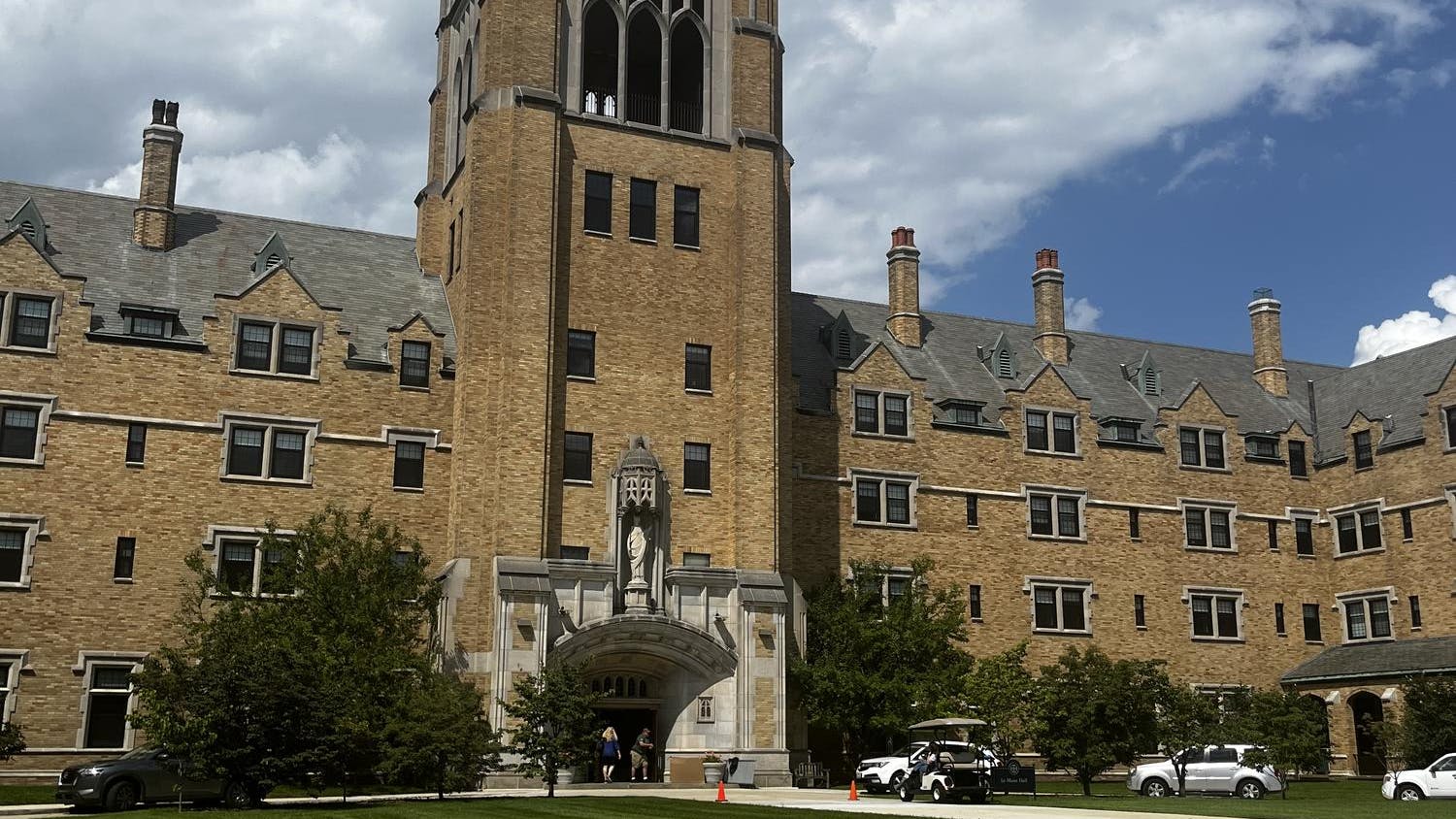Student behavior during class, disability services and a new master's program sparked debate in Faculty Senate this semester, chair MortenEskildsen said.
Eskildsen said the group acts as a voice for faculty interests on campus.

"We work in two ways — first as a reactionary to initiatives, proposals or anything that changes across campus that would affect faculty and secondly as a proactive group to address issues we feel could be improved," Eskildsen said.
Faculty Senate met only twice this semester due to the death of former chair J. Keith Rigby, Jr., Eskildsen said. Rigby, an associate professor of civil engineering and geological sciences, died Nov. 5.
Eskildsen said he cancelled the group's November meeting in honor of Rigby. Generally the Faculty Senate meets once every month.
Within the Senate are four committees — Academic Affairs, Administrative Affairs, Benefits and Student Affairs. Two students also sit on Faculty Senate as non-voting members. Ellen Childs represented graduate students, and student body vice president Brett Rocheleau spoke for undergraduates.
The faculty representatives discussed disruptive student behavior during its meetings this semester. Eskildsen said the use of cell phones and laptops during class concerns some faculty members.
Some professors also expressed frustration with tardiness and students who left during class, he said.

"The first thing is then to do some fact finding and find out to which degree this is a real issue," Eskildsen said. "Some people have expressed this concern on one committee, but it doesn't necessarily mean it's widespread."
Rocheleau said he hoped to work with the committee to solve any issues professors had with students' behavior in class.
"Talk about it and tell us," Rocheleau said. "If a professor puts it in a syllabus, we know. Some professors agree with some points [on student behavior] but I don't see how anything would be achieved by a study, which some faculty want to do."
The student representatives made a list of seven initiatives that could possibly improve student-faculty relations, Rocheleau said.
The seven initiatives included developing graduate student committees, improved graduate housing, reform in graduate health care, provision of teaching opportunities to graduate students, achieving balance in faculty's academic and home lives, the creation of an online syllabus database and updating disability services.
Disability services have been a large topic of discussion in the group this semester, Rocheleau said.
Eskildsen said the Faculty Senate worried the services did not fulfill the needs of those students.
"We have an office that provides services for anyone with a physical or learning disability, but it would seem it is understaffed," Eskildsen said. "Some teachers even take it on themselves and go way beyond what preparation for class should be to help remove obstacles in their way."
Another item on the Senate's agenda has been a proposal for a master's degree in Patent Law, which would be a part of the College of Science.
"The Faculty Senate is asked for input when new programs are proposed," he said. "The Academic Affairs Committee is looking into this one."
In addition to these issues, the Faculty Senate also planned to reassess faculty benefits, Eskildsen said.
"Hopefully in our [next] meeting , [director of compensation and benefits] Denise Murphy will brief us on some of the latest developments relating to retirement savings and those programs," he said. "The Committee on Benefits monitors what is going on and advocates for the faculty."
No matter the topic of discussion, Eskildsen said the main goal of the group this semester was to resolve issues on behalf of the faculty.
"We try not to just point out problems, though it is necessary," he said. "We want to offer constructive solutions as to how things could improve."












